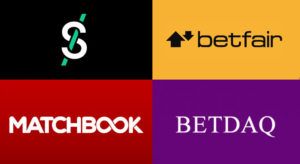Which is Best Fixed Odds or Skill-Based Betting?
When gambling, an important question you need to ask is whether your wager is fixed odds or based on skill. There is an important reason for this because it indicates your chance of winning and losing.
Betting on slot machines, roulette, black jack, three-card poker etc are fixed odds. The odds are carved in stone and cannot change. The odds are less than the actual chance of winning which means you only win by luck.
In fact, the longer you play the more you will lose.
For example, the casino is paying less than the true odds for a given win. A roulette wheel has 1 – 36 compartments (and the zero) but pays 35/1. This gives the house a 2.7% edge. It is worse in the US as they have a double zero (5.25%). Your best chance of beating house edge on fixed odds gambling is to win early and put the money in your pocket and leave. The longer you play the more likely you are to lose.
Skill-based betting, in theory, gives you a greater chance of winning as you are using your knowledge against the layer who thinks they know more. In horse racing this gives an astute gambler a fighting chance of winning. Although, it should be mentioned that the bookmakers will not have their book (betting prices) at 100%. For most horse races the betting market will be around 118% SP (starting prices). So if you bet on every horses in a race, long term, you would lose. That’s why it is important to have a level of skill which exceeds the bookmakers edge and their skill level.
No easy feat.
Out of the two methods of gambling, skill-based is by far the best option.
 In the good, old days of gambling you bet with bookmakers.
In the good, old days of gambling you bet with bookmakers.